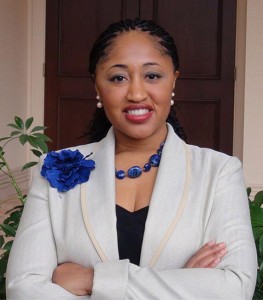 Community Matters is a biweekly opinion column. The views expressed are solely the author’s.
Community Matters is a biweekly opinion column. The views expressed are solely the author’s.
Earlier this month I attended the Arlington Historical Society (AHS) virtual event on the private school desegregation case, Runyon v. McCrary.
According to the AHS website, “the US Supreme Court outlawed racially segregated public schools in 1954, but whites-only private schools flourished throughout the South for decades. The Supreme Court’s 1976 decision extending the ban on racial segregation to private schools involved a segregated pre-school here in Arlington.”
As I was reminded of the behavior of Arlingtonians in the 1970s regarding attitudes about exclusivity and discrimination in education, I thought about how some of these attitudes still persist today. As we begin to conclude the 100 year anniversary of Arlington being named Arlington, it’s natural to think about how Arlington has, or has not, changed during that time.
Join this conversation hosted by Arlington County government today at 7 p.m. to learn more. It’s also an opportunity to discuss where Arlington will be in five, 20 or 100 years, and how we can be intentional as a community about getting there.
I moved to Arlington in 2004, and have been involved in several community activities. While Arlington has grown, one observation I have made over the last 16 years is that the same people are involved in several leadership roles and organizations. While most people in organizations understand that a small number of people do the bulk of the work, as we move into the next 100 years, Arlington should grow our leadership table.
We should consider:
Actively fostering succession planning and limiting your time in one role. Organizations should have policies in place which encourage members to participate in different committees, shadow leaders, and provide opportunities for members to socialize with leaders and members across the organization. We should also encourage members to advance in leadership instead of remaining as general members, and begin the process of identifying someone to take your place. While we generally believe that if people have the time and talent they should not be denied the opportunity to serve, we should consider how that affects our community over time.
Creating a culture of impact and productivity instead of busyness. We tend to reward people who are “busy,” and have long resumes with additional leadership roles. We should focus on the impact made during time spent with an organization, and begin to use that as an indicator of whether someone should be offered another role. When you are offered the opportunity to serve, consider whether you should suggest someone else who is qualified.
Intentionally recruiting new leaders outside of your network. It is generally easier to socialize with people who are like you. That’s one of the many reasons that white parents wanted their children to be in segregated schools up until 1976, and why many still want their children in segregated schools today.
I am the first to admit that I have fallen into the trap of being perpetually “busy.” Yet as I have grown in leadership, I have realized the importance of actively seeking and mentoring new leaders for the long term success of our organizations and Arlington. We should encourage each other to evolve into new roles at a higher level within Arlington, transfer our skills to the state or national level, or step back.
Those simple steps could go a long way in embracing new thought leaders and fostering change in Arlington during our next 100 years.
Krysta Jones has lived in Arlington since 2004 and is active in local politics and civic life. This column is in no way associated with or represents any person, government, organization or body — except Krysta herself.

